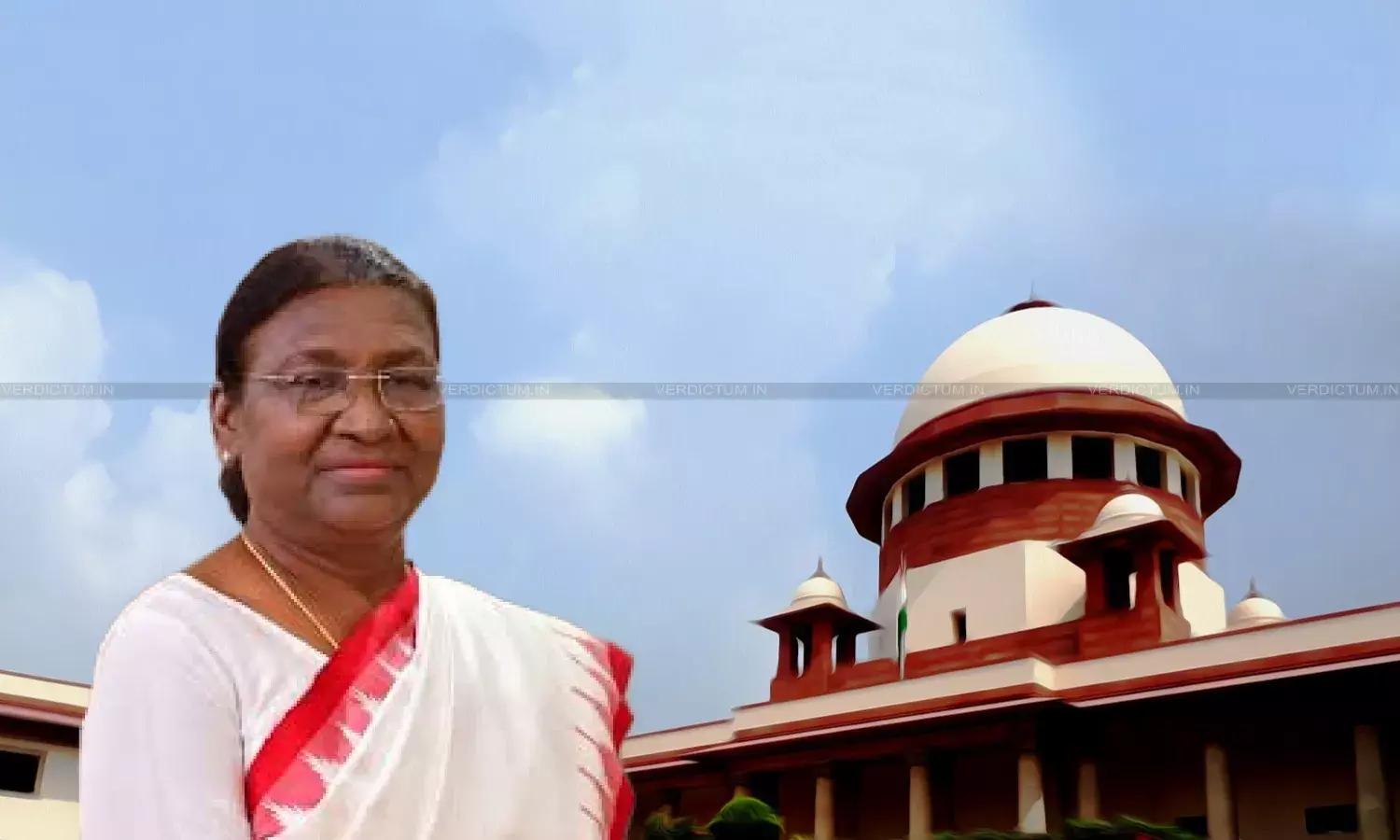Read Presidential Reference Containing 14 Questions To Supreme Court On Governors' & President’s Role In Granting Assent To Bills

The President of India, Droupadi Murmu, has invoked Article 143(1) of the Constitution to seek the Supreme Court’s advisory opinion on a wide array of questions surrounding the powers of Governors and the President in relation to state legislation.
The presidential reference, issued on May 13, 2025, raises 14 critical questions that touch the core of India’s federal structure, separation of powers, and constitutional governance.
The presidential reference comes amidst growing friction between State Governments and Raj Bhavans across the country, with several Bills reportedly pending approval for extended periods. The absence of clear timelines has led to legal uncertainty and governance bottlenecks, prompting States to approach the Supreme Court under Article 32, which is traditionally reserved for enforcement of fundamental rights.
In the case of State of Tamil Nadu v. Governor of Tamil Nadu (2025), the Supreme Court addressed the issue of the Governor withholding assent to state legislation. The Court emphasized that the Governor cannot exercise an absolute or "pocket veto" over Bills passed by the State Legislature. It highlighted that such inaction could be subject to judicial review, and in cases of prolonged delay, the Court may intervene to ensure the timely enactment of laws. This judgment aligns with the President's reference, particularly concerning the justiciability of the Governor's actions under Article 200 and the imposition of timelines for assent.
Similarly, in the State of Kerala v. Governor for State of Kerala case, the Kerala government challenged the Governor's decision to refer several Bills to the President without providing adequate justification. The Supreme Court found merit in the state's argument that the Governor's actions appeared adversarial and lacked transparency. The Court's scrutiny of the Governor's conduct in this case resonates with the President's reference, especially regarding the justiciability of actions and the necessity for timely decisions.
The reference primarily concerns Articles 200 and 201 of the Constitution, which deal with the Governor’s and the President’s powers regarding state legislation. The President has sought clarity on:
- What are the constitutional options before a Governor when a Bill is presented to him under Article 200 of the Constitution of India?
- Is the Governor bound by the aid & advice tendered by the Council of Ministers while exercising all the options available with him when a Bill is presented before him under Article 200 of the Constitution of India?
- Is the exercise of constitutional discretion by the Governor under Article 200 of the Constitution of India justiciable?
- Is Article 361 of the Constitution of India an absolute bar to the judicial review in relation to the actions of a Governor under Article 200 of the Constitution of India?
- In the absence of a constitutionally prescribed time limit, and the manner of exercise of powers by the Governor, can timelines be imposed and the manner of exercise be prescribed through judicial orders for the exercise of all powers under Article 200 of the Constitution of India by the Governor?
- Is the exercise of constitutional discretion by the President under Article 201 of the Constitution of India justiciable?
- In the absence of a constitutionally prescribed timeline and the manner of exercise of powers by the President, can timelines be imposed and the manner of exercise be prescribed through judicial orders for the exercise of discretion by the President under Article 201 of the Constitution of India?
- In light of the constitutional scheme governing the powers of the President, is the President required to seek advice of the Supreme Court by way of a reference under Article 143 of the Constitution of India and take the opinion of the Supreme Court when the Governor reserves a Bill for the President's assent or otherwise?
- Are the decisions of the Governor and the President under Article 200 and Article 201 of the Constitution of India, respectively, justiciable at a stage anterior into the law coming into force? Is it permissible for the Courts to undertake judicial adjudication over the contents of a Bill, in any manner, before it becomes law?
- Can the exercise of constitutional powers and the orders of/by the President / Governor be substituted in any manner under Article 142 of the Constitution of India?
- Is a law made by the State legislature a law in force without the assent of the Governor granted under Article 200 of the Constitution of India?
- In view of the proviso to Article 145(3) of the Constitution of India, is it not mandatory for any bench of this Hon'ble Court to first decide as to whether the question involved in the proceedings before it is of such a nature which involves substantial questions of law as to the interpretation of constitution and to refer it to a bench of minimum five Judges?
- Do the powers of the Supreme Court under Article 142 of the Constitution of India limited to matters of procedural law or Article 142 of the Constitution of India extends to issuing directions /passing orders which are contrary to or inconsistent with existing substantive or procedural provisions of the Constitution or law in force?
- Does the Constitution bar any other jurisdiction of the Supreme Court to resolve disputes between the Union Government and the State Governments except by way of a suit under Article 131 of the Constitution of India?
Under Article 143(1), the President can refer any question of law or fact of public importance to the Supreme Court for its opinion. While such an opinion is not binding, it carries significant moral and constitutional weight.


